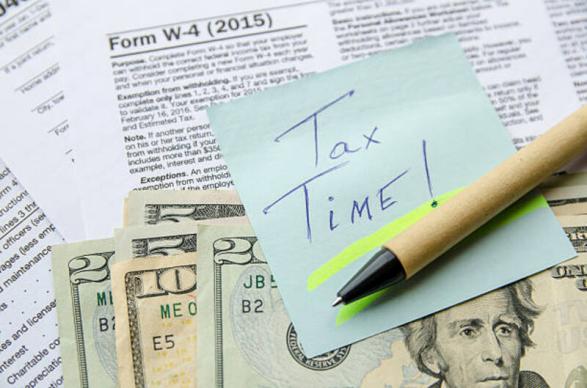Is Social Security Taxed After Age 70?
Feb 07, 2024 By Susan Kelly
Are you aware of the common confusion surrounding Social Security and taxes? For many retirees, understanding whether or not Social Security benefits are taxable after a certain age is a real head-scratcher. Though the answer may be complicated in some cases, most people know that their old age benefits must eventually be re-examined to determine how much, if any, of those payments are subject to taxation.
But what about after age 70? If you’re wondering whether or not Social Security will remain taxed even once you reach 70 years old – never fear! In this blog post we’ll cover all the information you need to understand exactly when your Social Security might become taxed as well as provide tips on minimizing tax exposure in retirement.
Definition of Social Security:
Social Security is a federal program that provides benefits to retired and disabled individuals who have paid into the system. Generally, these funds are considered nontaxable income; however, there are some situations in which they may become taxable.
Overview of the Taxation Rules for Social Security:

The taxation rules for Social Security vary depending on various factors such as your filing status and the amount of other income that you’re receiving. Generally, if your combined income (including Social Security) is more than $25,000/year for single filers or $32,000/year for married couples – then a portion of your benefits may be taxed by the IRS.
Are Social Security Benefits Taxed After Age 70?
When it comes to taxes and Social Security after age 70, the answer is not always clear cut. It depends primarily on how much other income you’re earning in retirement. As mentioned above, if your total annual income exceeds certain thresholds then a portion of your Social Security benefits might become taxable.
In general, Social Security benefits will remain untaxed until your income reaches certain levels. However, it is important to note that even after age 70 you may still have some Social Security benefits that are subject to taxation. So if you’re unsure whether or not your Social Security is taxable – be sure to speak with a qualified financial advisor to make sure you understand the rules and avoid any potential tax surprises!
How Age 70 Affects Taxes on Social Security Benefits?
Once you reach 70 years old, your Social Security benefits may become taxable depending on how much other income you’re earning. Generally, the IRS considers any income that is above $25,000/year for single filers or $32,000/year for married couples to be taxable. As mentioned previously, it is important to note that even after age 70 you may still have some Social Security benefits that are subject to taxation.
Exceptions to the Rule About Taxing After Age 70:
It’s important to remember that there are some exceptions to the rule about Social Security benefits being taxed after age 70. For example, if you’re receiving disability benefits then those funds may remain untaxed regardless of your income level. Additionally, if you have reached full retirement age but have not yet started collecting Social Security, then any wages you earn can be considered nontaxable up to a certain limit - $17,640 for 2019 and $18,240 in 2020.
Tips for Minimizing Tax Exposure in Retirement:

Though it can be tricky to navigate the taxation rules for Social Security benefits after age 70, there are a few simple strategies that can help you minimize your tax exposure in retirement.
Consider using your retirement savings accounts (such as IRA and 401(k)) to supplement your income in retirement. Doing so will help keep your taxable income below the thresholds set by the IRS so that you won’t have to pay taxes on any of your Social Security benefits.
- Make sure you stay up-to-date on changes in tax law and consult with a qualified financial advisor if necessary.
- Knowing the current regulations and making informed decisions about how to manage your finances can go a long way towards ensuring that you don’t end up paying more in taxes than you need to.
Conclusion:
Taxes on Social Security can be a confusing topic – especially when it comes to figuring out how taxes are affected by reaching age 70. In most cases, your Social Security benefits will remain untaxed until your income reaches certain thresholds. However, it’s important to remember that there are some exceptions to this rule and that even after age 70 you may still have some Social Security benefits that are subject to taxation.
By understanding the taxation rules for Social Security and utilizing strategies such as using retirement savings accounts to supplement income, retirees can ensure they don’t end up paying more in taxes than necessary. Additionally, staying up-to-date on any changes in tax law and consulting with a qualified financial advisor can help make sure you understand exactly when your Social Security might become taxed.
FAQS:
Is social security taxed after age 70?
The taxation rules for Social Security vary depending on various factors such as your filing status and the amount of other income that you’re receiving. Generally, if your combined income (including Social Security) is more than $25,000/year for single filers or $32,000/year for married couples – then a portion of your benefits may be taxed by the IRS.
How is social security taxed?
The taxation of Social Security benefits depends on your total income, filing status and other factors. Generally, if your combined income (including Social Security) is more than $25,000/year for single filers or $32,000/year for married couples – then a portion of your benefits may be taxed by the IRS.

Form 1095-C: Definition, Uses, and Tax Filing Requirements Explained

Deciphering Public Offerings: Direct Listings versus IPOs

Understanding and Preventing Identity Fraud in Commercial Applications

Timing Your Tax-Loss Harvesting: A Guide to Smart Investing

Understanding the Different Types of Clearinghouses in Financial Markets

Navigating Artificial Intelligence: Lessons from the Financial Sector

What Is Warren Buffett's Investment Strategy?

Great Western Insurance Company: Behind the Scenes of Customer Satisfaction

How Multipoint Verification Fights Growing Commercial Fraud

